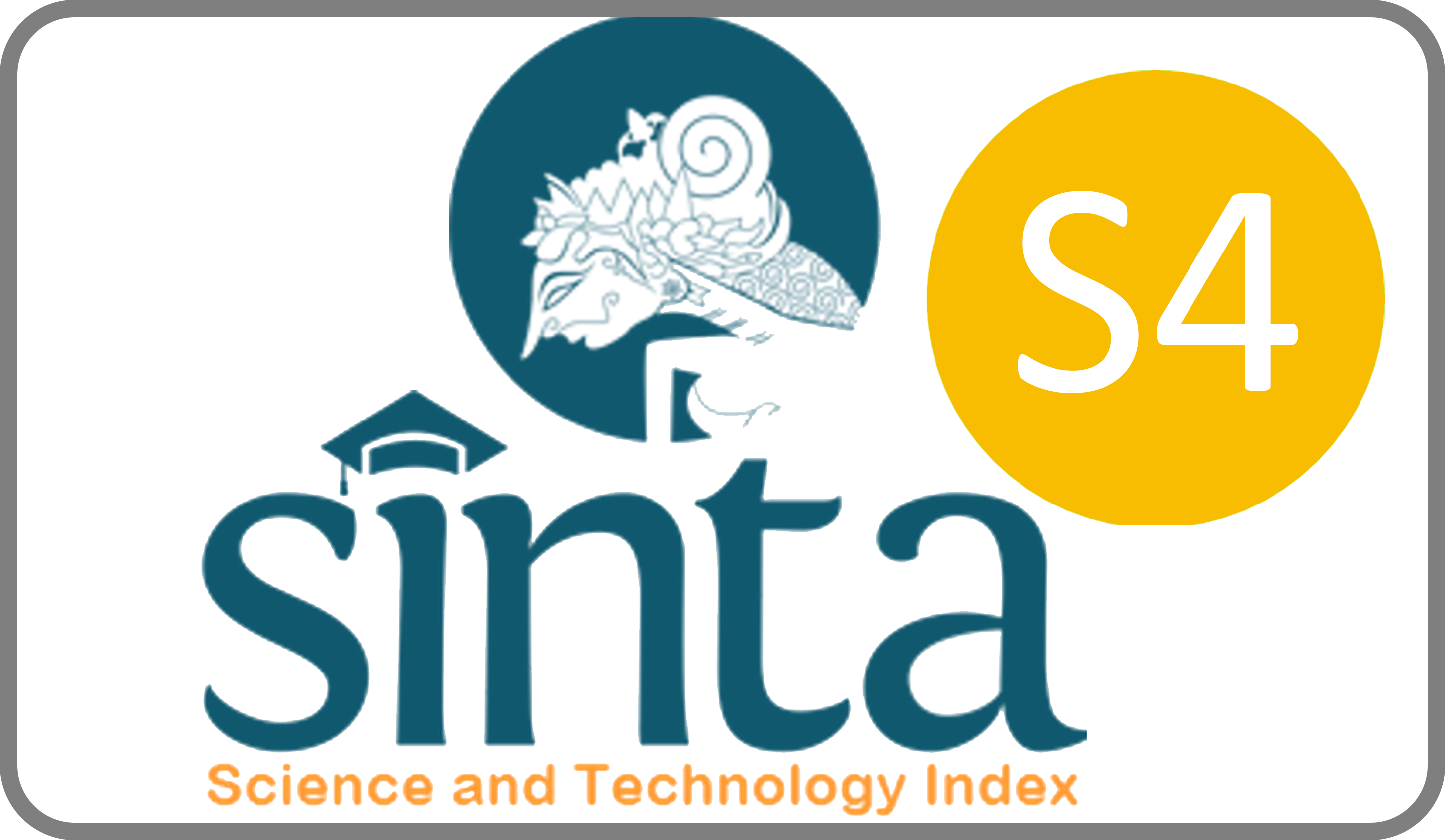HALAL CERTIFICATION EDUCATION AND GUIDANCE FOR SEMAR MESEM CHICKEN SLAUGHTERHOUSE (RPA) MICRO BUSINESS IN BANJARSENGON VILLAGE, PATRANG SUB-DISTRICT, JEMBER REGENCY
Downloads
Products from slaughtered animals need to have halal certification to ensure the peace of mind of Indonesian consumers, most of whom are Muslims. The development of micro-scale poultry slaughtering businesses has raised questions about whether chicken meat circulating in the community meets the requirements of safe, healthy, intact and halal (ASUH) quality. The purpose of this activity is to provide education, socialization, and assistance in obtaining halal certification to expand marketing and increase the turnover of entrepreneurs at the Semar Mesem Chicken Slaughterhouse (RPA). The method used is to conduct socialization through FGD and assistance in submitting halal certification in the field. Socialization and technical guidance regarding halal and halal certification were carried out by inviting speakers from the Madani Halal Center. The FGD activity was attended by business owners and employees with a total of 25 participants. The activity was assistance in preparing administrative files for submitting halal certification, determining the halal management team, preparing the Halal Assurance System (SJH) manual, facilitation assistance and education on halal policies, and assistance in online registration for halal certification through SiHalal. Participants’ knowledge after the socialization increased from 16% to 80%. After going through these stages, it is hoped that RPA Semar Mesem can immediately obtain a halal certificate for its business.
Direktorat Statistika Peternakan Perikanan dan Kehutanan. 2022. “Peternakan Dalam Angka Tahun 2022.” Jakarta.
Enzovani, Senna, Prima Rini Metri Oktavianti, and Astrid Aprica Isabella. 2023. “Sosialisasi Pendampingan Sertifikasi Halal Self Declare Bagi UMK PSMTI Bandar Lampung.” Jurnal Pengabdian Masyarakat Bangsa 1, no. 6: 927–32.
Fatimah, Cheche Ida Siti, Hervina Hervina, and Yanti Haryani. 2025. “Optimalisasi Peran Lembaga Pendamping Proses Produk Halal (LP3H) Dalam Peningkatan Sertifikasi Produk Halal Melalui Jalur Self Declare.” Journal of Islamic Economic Law 3, no. 1 (June): 39–48. https://doi.org/10.21093/mj.v23i1.6529.
Fitri, Zusi Eka, and Aji Jumiono. 2021. “SERTIFIKASI HALAL PRODUK OLAHAN PANGAN.” Jurnal Pangan Halal. Vol. 3.
Go, Ratna Yulika, and Nur Aini. 2025. “Pelatihan Pendampingan Proses Produk Halal Untuk Meningkatkan Digitalisasi Sertifikasi Halal Pada Usaha Mikro Kecil.” Jurnal Abdimas 11, no. 3: 174–79.
Gunawan, Setiyo, Juwari Juwari, Hakun Aparamarta, Raden Darmawan, and Nur Aini Rakhmawati. 2021. “Pendampingan Berkelanjutan Sistem Jaminan Halal Bagi Usaha Mikro, Kecil, Dan Menengah (UMKM).” SEWAGATI 5, no. 1 (February): 8. https://doi.org/10.12962/j26139960.v5i1.8120.
Hidayati, Bela Shafira. 2024. “Persepsi Konsumen Terhadap Produk Halal Dari UMKM: Dampak Terhadap Keputusan Pembelian.” Jurnal Ekonomika Dan Bisnis (JEBS) 4, no. 4 (July): 619–25. https://doi.org/10.47233/jebs.v4i4.1925.
Jameelah, Maryam, Lukman Azis, Nanang Haroni, Nadya Mara Adelina, Shalwa Destirana, Alya Husna, Abdur Rahman Dimas Said, et al. 2025. “Pendampingan Penerapan Sistem Jaminan Produk Halal Rumah Potong Ayam Cari Berkah, Desa Pagelaran, Malingping, Kabupaten Lebak, Banten.” Prosiding Seminar Nasional Pemberdayaan Masyarakat (SENDAMAS) 4, no. 1 (April): 329. https://doi.org/10.36722/psn.v4i1.3562.
Khamidinal, Khamidinal, Didik Krisdiyanto, Sudarlin Sudarlin, Irwan Nugraha, and Endaruji Sedyadi. 2018. “Upaya Penyuluhan Proses Sertifikasi Halal Hasil Penyembelihan Rumah Potong Ayam (RPA) Pada Anggota Kelompok Ternak Unggas ‘Mitra Harapan Turi’ Dusun Garongan Wonokerto Turi Sleman Yogyakarta.” APLIKASIA: Jurnal Aplikasi Ilmu-Ilmu Agama 18, no. 1: 63–72. http://www.halalmui-.
Makbul, Mohammad, Ali Rokhman, and Lidia Fathaniyah. 2023. “Analisis Kebijakan Mandatory Sertifikasi Halal Dalam Meningkatkan Pembangunan Industri Halal Di Indonesia.” Islamadina : Jurnal Pemikiran Islam, November (November), 289. https://doi.org/10.30595/islamadina.v0i0.17738.
Maulana, Diky Faqih, Makhrus Makhrus, and Hamidatul Hasanah. 2022. “The Urgency of MUI Halal Fatwa about Food, Beverage, Medicine and Cosmetic Products for the Consumer Protection.” Volksgeist V, no. 2: 199–214. https://doi.org/10.24090/volksgeist.
Rachman, Aulia, and Maisyarah Rahmi Hasan. 2025. “Problematika Penerapan Sertifikasi Halal Self Declare Di Indonesia Dalam Perspektif Maqasid Syariah.” Al Qalam: Jurnal Ilmiah Keagamaan Dan Kemasyarakatan 19, no. 2 (March): 690. https://doi.org/10.35931/aq.v19i2.4797.
Rahmasari, Reikha, Rosa Tri Hertamawati, and Anang Febri Prasetyo. 2022. “Penguatan UMKM Rumah Potong Ayam (RPA) Bungur Melalui Perbaikan Manajemen RPA Dan Pengolahan Karkas Sisa Produksi.” 5th National Conference for Community Service (NaCosVi), 91–96. https://proceedings.polije.ac.id/index.php/ppm/article/view/376.
Simbolon, Demsa, Antun Rahmadi, Jurusan Gizi, Politeknik Kesehatan Kemenkes Bengkulu, and Politeknik Kesehatan Tanjung Karang. 2019. “Pengaruh Pendampingan Gizi Terhadap Perubahan Perilaku Pemenuhan Gizi Ibu Hamil Kurang Energi Kronik (KEK).” Jurnal Kesehatan. Vol. 10. Online. http://ejurnal.poltekkes-tjk.ac.id/index.php/JK.
’Ula, Ahmad Nilnal Munachifdlil, Rozaq M. Yasin, and Sigit Arrohman. 2024. “Pengembangan Usaha Rumah Potong Unggas Dalam Upaya Menjamin Peredaran Daging Unggas Halal Dan Meningkatkan Kesehatan Masyarakat Veteriner.” Jurnal Pembelajaran Pemberdayaan Masyarakat (JP2M) 5, no. 4 (October): 1001–10. https://doi.org/10.33474/jp2m.v5i4.22484.
Copyright (c) 2025 Rosa Tri Hertamawati, Anang Febri Prasetyo, Shokhirul Imam, Reikha Rahmasari, Agus Hadi Prayitno, Wahyu Suryaningsih

This work is licensed under a Creative Commons Attribution-ShareAlike 4.0 International License.
JLM by Unair is licensed under a Creative Commons Attribution-ShareAlike 4.0 International License.
1. The journal allows the author to hold the copyright of the article without restrictions.
2. The journal allows the author(s) to retain publishing rights without restrictions
3. The legal formal aspect of journal publication accessibility refers to Creative Commons Attribution Share-Alike (CC BY-SA).
4. The Creative Commons Attribution Share-Alike (CC BY-SA) license allows re-distribution and re-use of a licensed work on the conditions that the creator is appropriately credited and that any derivative work is made available under "the same, similar or a compatible license”. Other than the conditions mentioned above, the editorial board is not responsible for copyright violation.


















